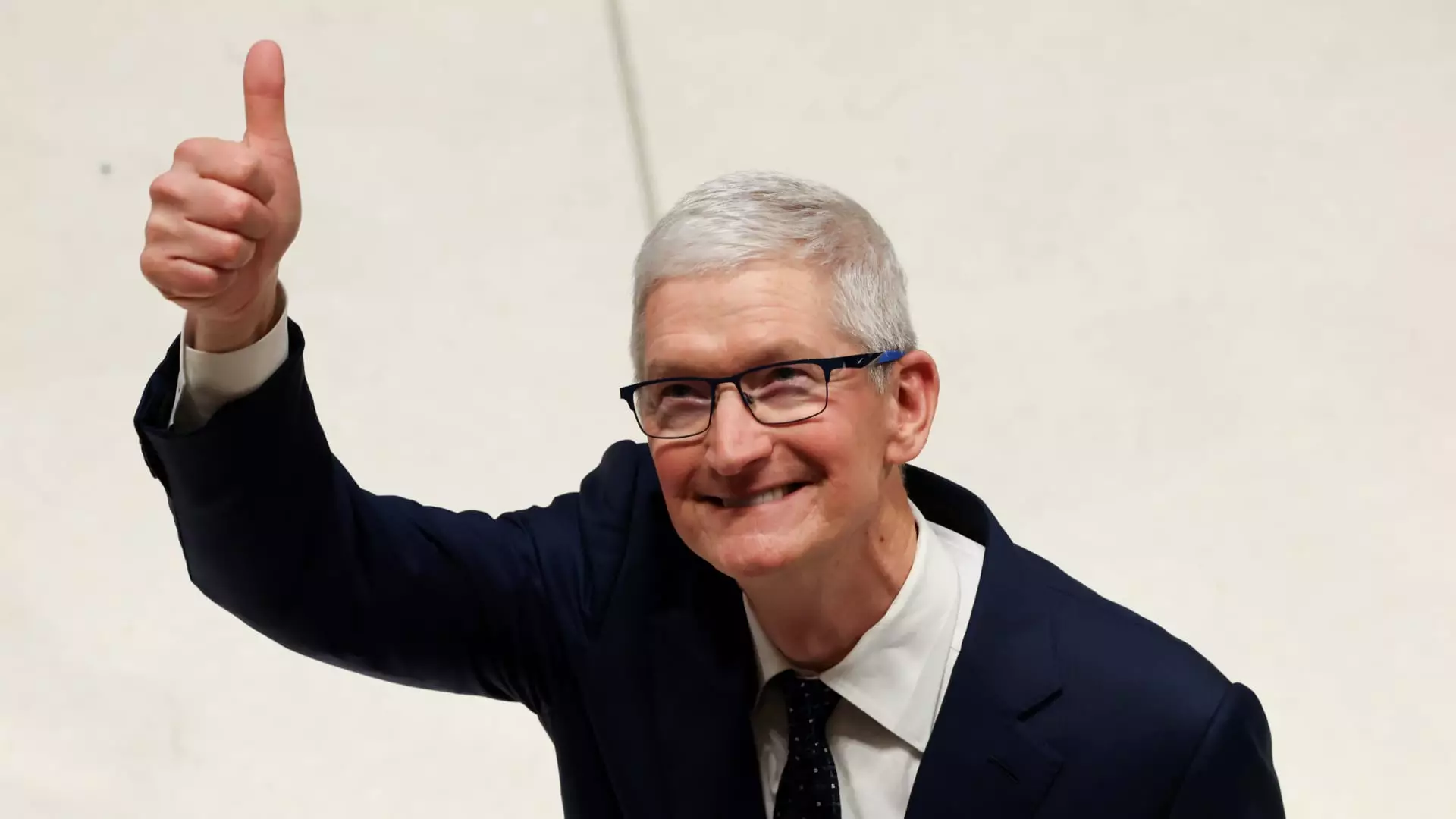In an era where digital vulnerability looms large, Apple has emerged as a reluctant warrior in the tech landscape’s most heated battleground: the clash between user privacy and governmental surveillance. Recently, the U.K. Investigatory Powers Tribunal made a landmark ruling favoring Apple, allowing the tech giant to publicly air the details of its legal struggle against the government’s demands for a “backdoor” into iPhone user data. The tribunal’s decision to reject the government’s claim that revealing the hearing’s details would jeopardize national security marks an important chapter in the ongoing saga of privacy rights against state intrusion.
The Political Context of Digital Privacy
The British government’s plea to keep the appeal under wraps was emblematic of a broader, troubling trend seen across various jurisdictions. Governments worldwide, driven by concerns over terrorism and crime, have increasingly sought ways to undermine encryption methods that protect user data. The U.K.’s Investigatory Powers Act of 2016, a controversial piece of legislation itself, empowers the state to compel tech companies to create pathways for surveillance. This reflects a disquieting reality: as tech firms innovate to safeguard user data, governments press for the capacity to undermine that same security in the name of public safety.
In this dynamic, Apple finds itself in a challenging position. Known for its strong pro-privacy stance, the company has long maintained that weakening its encryption compromises the very security it tries to provide. The crux of the argument is not merely about data access but a fundamental question of rights: should governments have the authority to mandate surveillance capabilities in a digital age? Apple’s position is that creating a “backdoor” is a paradox; if a door exists for authorities, it also exists for malicious actors.
Judicial Independence and Transparency
The tribunal’s judges, Rabinder Singh and Jeremy Johnson, articulated a vital principle underlying democratic systems: the need for transparency in legal proceedings. Their assertion that keeping details of the hearing secret would amount to a substantial violation of the open justice principle cannot be overstated. Such a principle underpins accountability in governance and ensures that citizens are not subjected to clandestine operations that may infringe upon their rights.
The judges recognized that conducting a secret hearing would have far-reaching implications not just for this case but for the very essence of public trust in the judicial process. By allowing the details of Apple’s appeal to be made public, the tribunal reinforced the importance of transparency, setting a precedent for future cases that straddle the intricate line between privacy and state interests.
Apple’s Unyielding Resolve
As the U.K. government pushes for increased access to encrypted data, Apple has remained unwavering in its commitment to protecting user privacy. Earlier this year, as a direct consequence of the government’s demands, Apple made the difficult decision to withdraw its Advanced Data Protection (ADP) system from the U.K. market, a move that disappointed many loyal customers who valued the heightened security this system provided.
In a bold statement, Apple has declared that it has “never built a backdoor or master key to any of our products or services and we never will.” This declaration is not merely corporate rhetoric but reflects a staunch ethical stance on personal privacy in the digital age. In a world fraught with data breaches and privacy violations, Apple’s choice to stand firm against governmental pressure serves as a vital reminder of the ongoing struggle for consumer rights.
The Wider Implications for Global Tech Standards
This ongoing battle holds significant implications beyond the borders of the United Kingdom. As digital rights advocates rally behind Apple’s cause, it becomes increasingly evident that the issue of encryption and governmental access will resonate on a global scale. Should governments succeed in weakening encryption standards, the ripple effects could fundamentally reshape the way technology companies approach user privacy.
Moreover, the failure to respect the principle of open justice, as highlighted by the tribunal, could embolden efforts to bypass civil liberties under various pretexts. Such developments threaten not just individual privacy but the foundational principles of democratic societies, in which transparency and accountability are paramount.
Ultimately, the confrontation between Apple and the U.K. government is more than a legal dispute; it represents a critical juncture in society’s ongoing dialogue regarding privacy, security, and the digital future. The stakes are high, and how this scenario unfolds will indubitably shape the landscape for generations to come.


Leave a Reply